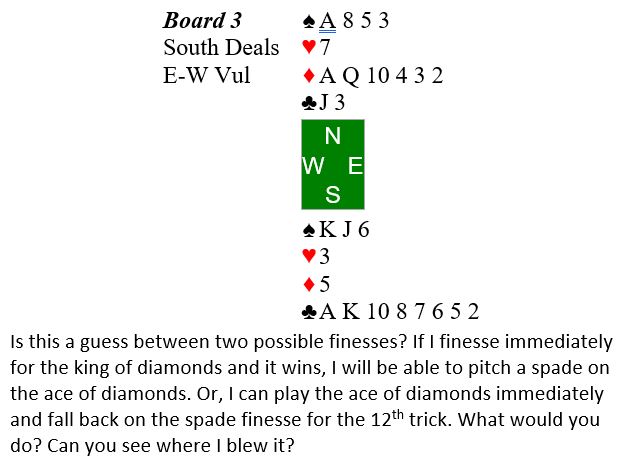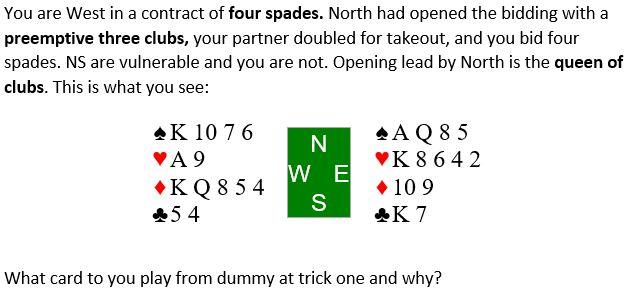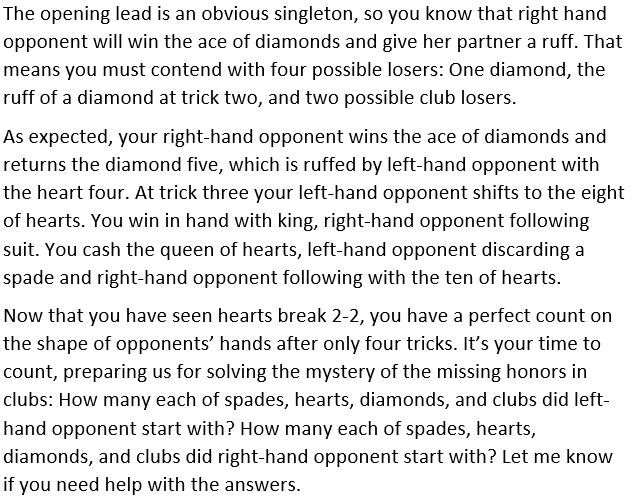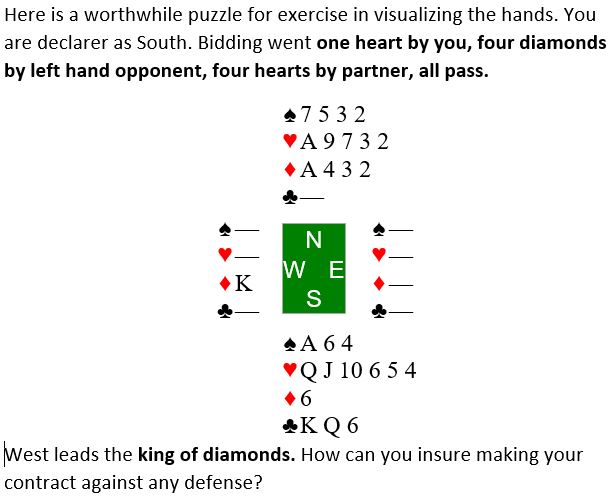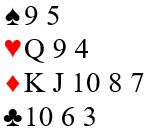As I watched our Swiss Teams last week, I noticed that intermediate players are not routinely giving partner count on defense. Here is one such situation when you are defending a notrump contract:
Partner has made the typical opening lead from a long suit that she would obviously like to set up. Subsequently you are in and are ready to return her suit. As you do so you would like partner to know the number of cards you presently hold in her suit. Why does that matter, and which card do you play when returning her suit?
It matters because partner wants to discern if the suit is ready to run and if there are any remaining impediments to getting all your available tricks. You can convey that information by the card you choose.
This example from a recent hand should clarify. I was in 3NT and West gets the defense off to a great start by leading the four of hearts:
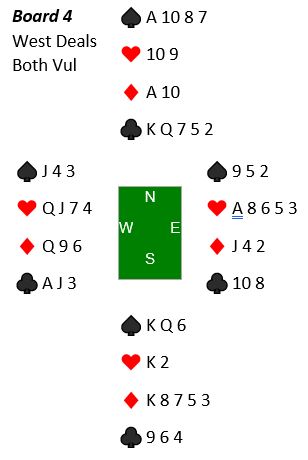
I can see right away that I am going down. EW know from the bidding that I hold two or three hearts, and I know they are going to continue the suit. I know hearts are 5-4, although I cannot tell whether it is West or East who started with five hearts. EW are going to cash four hearts and the ace of clubs. My only hope is that somehow they manage to block the heart suit.
East wins the ace and is ready to return a heart. Do you see why it’s important for West to know how many hearts East has? It’s important because, as the card lie, West will need to play an honor under my king or else the heart suit it blocked. If West can discern that East is returning a heart from a present holding of four hearts, she will know it’s necessary to hold onto the seven. Otherwise she cannot get back to East’s hand, so that East can cash the last heart.
Which card should East play, so that West knows to unblock an honor? Playing a low card from you present holding shows an odd number, and playing the highest card you can reasonably afford (not the eight!) shows an even number. In this case East should return the six of hearts to let partner know she presently holds four hearts.
What happened in real life? West played the seven under my king and the hearts were blocked. I made an underserved 3NT.

